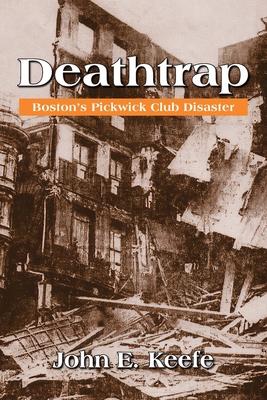The holiday eve festivities in the dingy, second floor speakeasy showed no signs of abating as the clock neared three that Fourth of July morning in 1925. The orchestra had just finished a lively ragtime number, and dozens of couples were still on the floor when the lights grew strangely dim, flickered a few times, and then went out, plunging the room into darkness just as the outside wall began to crumble with an earsplitting crack. Terrified patrons rushed for the room's only exit, but only a handful were able to reach it before the floorboards gave way, sending everyone inside tumbling headlong into a pitch-black abyss-their frantic screams drowned out by a thunderous roar as tons of debris hurtled down from the upper floors.
Forty-four people died when the building fell, and dozens more suffered serious injuries. City and state officials wasted no time in blaming each other, but neither side made any real effort to find out why the old, five-story building suddenly collapsed into a pile of rubble without any signs of warning. To this day, the cause officially remains unknown.
Join author and researcher John Keefe as he provides a detailed look into the tragedy, and exposes repeated instances of negligence in both the public and private sectors that combined to produce what one newspaper called, "the most disgraceful disaster in the city's history."
